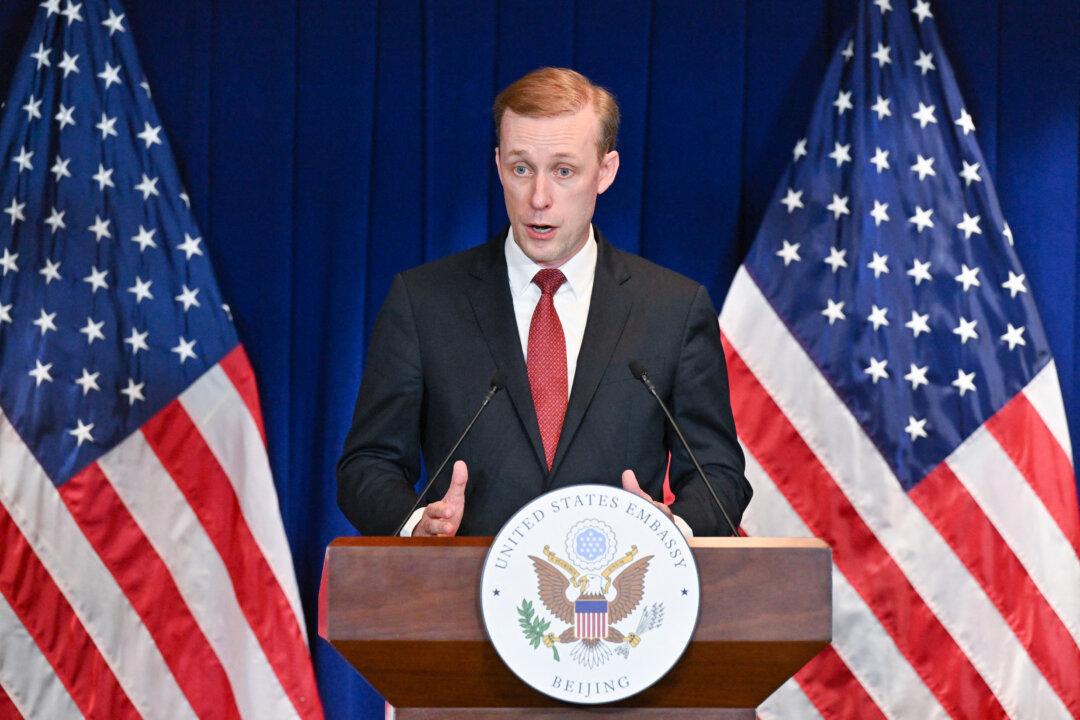U.S. national security adviser Jake Sullivan met with Chinese Communist Party (CCP) leader Xi Jinping on the third and final day of a rare visit to Beijing after holding talks with a senior Chinese military official on the same day.
Sullivan’s visit to Beijing is the first such trip by a U.S. national security adviser in eight years. Secretary of State Antony Blinken and Treasury Secretary Janet Yellen made similar visits earlier this year.





